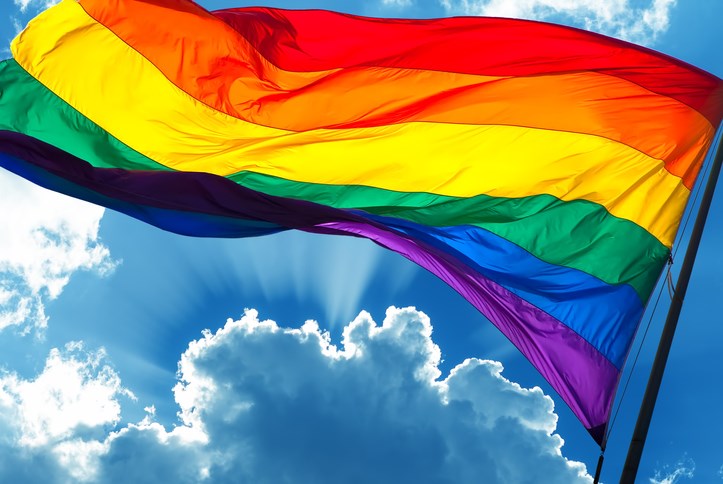B.C.’s Human Rights Tribunal has dismissed a complaint saying Langley’s flying of an LGBTQ+ rainbow flag is discriminatory.
Complainant Kari Simpson said it discriminated against her on the bases of accommodation, service and facility on the basis of religion, sexual identity and gender identity or expression.
Simpson said flying the flag incited “contempt and hatred for Christians, and any other religious group that does not accept the sex activists’ political agenda,” the ruling said.
Simpson described herself as “a Canadian, a Christian, a local business owner, president of a non‐profit organization called Culture Guard and a local resident who is often in the vicinity of the Langley City flag poles.”
She told the tribunal flying the rainbow flag while denying her request for the “Canadian Christian Flag” to be flown on the “National Day of Blessings” was discriminatory.
The city’s council passed a motion in July 2016 amending its flag policy to include flying the Rainbow Flag for a one‐week period annually during Vancouver’s annual Pride Week.
Two years later, a Simpson, social conservative activist opposed to any positive portrayal of a gay lifestyle, sent council a letter objecting to the flag.
She described the flag as a symbol of a campaign that “panders to sex activism, bully tactics, child abuse and special rights for certain groups.” Simpson described the flag as “oppressive and used to direct hatred and contempt against anyone who dares challenge the LGBTQ2++ narrative” and a “trigger event that causes those who have been sexually assaulted by someone of the same sex to have to relive painful events.”
Further, she said, “like the Nazi flag, the rainbow flag is a symbol for a militant political movement. It was created to declare power and victory and represents a political movement; and it identifies with political propaganda that is hostile and threatening towards other protected groups.”
The city rejected Simpson’s request.
A month later, Simpson sent another letter, requesting the “Canadian Christian Flag” be flown on the “National Day of Blessings.” Neither of the terms was explained.
The city said such a day is not a recognized holiday in Canada and that it was unaware of a nationally recognized “Canadian Christian Flag.”
The request was denied.
The April 7 decision by tribunal member Paul Singh said information filed by the city showed Simpson appears to be the creator of both the celebration day and the Christian flag.
“Ms. Simpson does not dispute this,” Singh wrote.
“The city says it does not provide courtesy flag services to any religion because it is bound by a duty of religious neutrality,” Singh said.
Despite the denial, Ms. Simpson showed up at city hall on Oct. 1, 2018, and displayed her flag.
“She was not impeded by the city from doing so,” Singh said.
Singh said Simpson provided no evidence about how flying the flag endangered her.
He said flying the rainbow flag by municipalities furthers non-discrimination.
“The Rainbow Flag is a symbol of pride representing the diversity of LGBTQ+ communities and is a symbol to promote inclusivity and to address issues such as racial discrimination, cultural exclusions and other challenges faced by those in the LGBTQ+ communities,” Singh wrote.
Further, he said, the prohibition against flying religious flags while flying the Rainbow Flag is not a distinction that is discriminatory.
Simpson’s claim of discrimination had no reasonable prospect of succeeding, Singh wrote in approving the city’s application to have the complaint dismissed in its entirety.
@jhainswo



